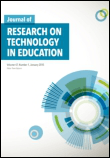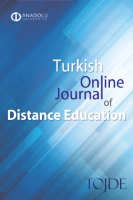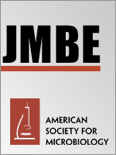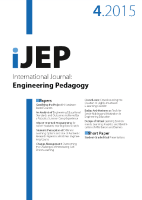
Journal of Information Technology Education-Innovations in Practice
Scope & Guideline
Innovating Education Through Technology
Introduction
Aims and Scopes
- Integration of Technology in Education:
The journal explores how various technologies, such as AI, virtual reality, and augmented reality, are integrated into educational practices, aiming to enhance student engagement and learning outcomes. - Innovative Pedagogical Strategies:
It focuses on innovative teaching methodologies, including gamification, design thinking, and constructionist approaches, to foster critical thinking and problem-solving skills among students. - Research on Learning Analytics and Educational Data Mining:
The journal publishes studies that utilize data analytics to improve educational practices, such as predicting student performance and understanding learner behaviors. - Digital Literacy and Self-Regulated Learning:
It emphasizes the importance of digital literacy and self-regulated learning in contemporary education, providing insights into how digital tools can support metacognitive strategies and self-directed learning. - Case Studies and Practical Applications:
The journal includes case studies that showcase practical applications of educational innovations, offering valuable insights for educators looking to implement new technologies in their classrooms.
Trending and Emerging
- AI and Machine Learning in Education:
Research exploring the use of AI tools, such as chatbots and coding assistants, is on the rise, reflecting the growing interest in how artificial intelligence can support teaching and learning processes. - Virtual and Augmented Reality Applications:
There is an increasing focus on the use of virtual and augmented reality in educational settings, particularly for enhancing practical learning experiences in fields like engineering and vocational training. - Gamification and Engaging Learning Environments:
The trend towards gamifying educational experiences is evident, with studies highlighting its effectiveness in increasing student engagement and motivation. - Emotional and Social Aspects of Learning:
Emerging themes include the investigation of learner emotions and social interactions in online learning environments, underscoring the importance of mental and emotional well-being in educational success. - Self-Regulated and Personalized Learning:
The journal is seeing a growing emphasis on self-regulated learning strategies, particularly in the context of digital tools that foster personalized learning experiences.
Declining or Waning
- Traditional Learning Methods:
There is a noticeable decrease in research focused on traditional, non-digital teaching methods, as the emphasis shifts towards integrating technology and innovative pedagogies. - Static Assessment Techniques:
Topics related to static, traditional assessment methods are becoming less frequent, as there is a growing interest in formative, ongoing assessments that leverage technology for real-time feedback. - General Discussions on Technology in Education:
Broad discussions about technology without a specific focus on innovative applications or methodologies are waning, as the journal increasingly prioritizes evidence-based practices and specific case studies.
Similar Journals

Revista Educacion en Ingenieria
Elevating Educational Standards in the Engineering CommunityRevista Educación en Ingeniería is a distinguished academic journal dedicated to advancing research and discourse in the field of engineering education. Published by the Asociación Colombiana de Facultades de Ingeniería, this journal seeks to foster innovative teaching practices and facilitate the exchange of ideas among educators, researchers, and students within the engineering domain. With an ISSN of 1900-8260, it provides a platform for scholarly articles that explore pedagogical methodologies, curriculum development, and technological integration in engineering programs. Although the journal operates under a traditional access model, its commitment to high-quality research is reflected in its broad scope, which invites contributions from a diverse range of educational perspectives. The Revista Educación en Ingeniería plays a critical role in shaping the future of engineering education, ensuring that researchers and practitioners can stay informed about the latest developments and best practices in the field.

Research in Education and Learning Innovation Archives-REALIA
Connecting researchers and educators for impactful change.Research in Education and Learning Innovation Archives (REALIA) is an esteemed academic journal dedicated to advancing the field of education through innovative research and scholarly discourse. Published by UNIV VALENCIA, SERVICIO PUBLICACIONS, this journal has embraced an open access model since 2019, ensuring that research findings are readily available to a global audience, thereby enhancing the dissemination of knowledge in educational practices and innovations. With an ISSN of 2659-9031, REALIA serves as a vital platform for researchers, educators, and professionals interested in the latest trends, methodologies, and theoretical underpinnings in education. Located in the vibrant educational landscape of Valencia, Spain, the journal not only promotes interdisciplinary dialogue but also encourages collaboration between academic and practical approaches to learning. By prioritizing high-quality peer-reviewed articles, REALIA aims to address contemporary challenges faced in education, making it an essential resource for those looking to push the boundaries of learning innovation.

Journal of Research on Technology in Education
Bridging Technology and Education for a Smarter Tomorrow.The Journal of Research on Technology in Education is a premier academic publication dedicated to exploring the intersection of technology and education. Published by ROUTLEDGE JOURNALS, TAYLOR & FRANCIS LTD, this journal stands at the forefront of educational research, boasting impressive Q1 rankings in both Computer Science Applications and Education for 2023. With an ISSN of 1539-1523 and an E-ISSN of 1945-0818, it is recognized in the Scopus database, ranking 31st out of 1543 in the field of Education, placing it in the 98th percentile, and 73rd out of 817 in the domain of Computer Science Applications, within the 91st percentile. The journal is committed to publishing high-quality research that informs practice and policy, with a scope that covers innovative uses of technology in educational settings from its inception in 2001 through 2024 and beyond. It is an essential resource for researchers, educators, and policymakers looking to harness the potential of technology in enhancing teaching and learning experiences.

Turkish Online Journal of Distance Education
Advancing Innovations in Online Education.Turkish Online Journal of Distance Education, a distinguished publication from ANADOLU UNIVERSITY, serves as a vital resource in the field of distance education, contributing significantly to the ongoing discourse since its inception in 2000. With an impressive impact factor that reflects its standing within the academic community, this open access journal provides an influential platform for researchers, educators, and practitioners to disseminate innovative findings and educational strategies. Ranked in the Q2 category within the education sector according to the 2023 quartile rankings, and boasting a commendable position of #423 out of 1543 in Scopus' Social Sciences Education rankings, the journal places itself firmly within the 72nd percentile of its cohort. Spanning from 2004 to 2024, the journal's commitment to advancing scholarship in distance education is reflected not only in its comprehensive articles but also in its responsive engagement with contemporary educational challenges. Positioned in Eskişehir, Turkey, this journal aims to elevate discussions surrounding online learning and contributes to the global dialogue on education accessibility and innovation.

Research and Practice in Technology Enhanced Learning
Advancing educational frontiers through technology.Research and Practice in Technology Enhanced Learning is a leading international journal dedicated to advancing the field of educational technology and its applications in various learning environments. Published in Taiwan, this journal has firmly established itself as an open-access platform for sharing innovative research, practical insights, and emerging trends since its inception in 2015. With an impressive Q1 ranking in Education and Media Technology for 2023, coupled with notable placements in the fields of Social Psychology and Management of Technology and Innovation, the journal underscores its significance in fostering interdisciplinary collaboration among scholars and practitioners. Its rigorous peer-review process ensures the publication of high-quality articles that contribute substantively to both theoretical and practical knowledge. The journal's commitment to open access enhances its visibility and accessibility, making it an invaluable resource for researchers, educators, and students seeking to explore the intersection of technology and learning.

Journal of Information Technology Education-Research
Transforming Educational Landscapes with IT InsightsThe Journal of Information Technology Education-Research, published by the Informing Science Institute, stands as a pivotal resource in the field of educational technology and computer science. With an ISSN of 1547-9714 and an impressive E-ISSN of 1539-3585, this journal aims to disseminate high-quality research and innovative practices that enhance the integration of information technology in educational contexts. It has achieved commendable rankings, notably Q2 in Computer Science (miscellaneous), Q1 in Education, and Q2 in E-learning for the year 2023, reflecting its significance and impact in these domains. Within the Scopus metrics, it ranks #178 out of 1543 in Social Sciences Education and #50 out of 232 in General Computer Science, positioning it in the top percentiles of its fields. This journal is dedicated to fostering scholarly discourse and providing a platform for educators, researchers, and professionals to share their findings and insights, contributing to the advancement of knowledge and practices in information technology education. The journal covers research from 2011 to 2024, ensuring a comprehensive collection of contemporary studies that engage with current trends and challenges in IT education. For scholars seeking an open-access platform to disseminate their work, this journal presents an invaluable option to engage with a broad academic audience.

Teaching Statistics
Pioneering Research for Effective Statistical Teaching.Teaching Statistics is a peer-reviewed journal published by Wiley, dedicated to the advancement of statistical education and pedagogical methodologies. With its ISSN 0141-982X and E-ISSN 1467-9639, this esteemed journal has been an integral resource since its inception in 1979, providing a platform for innovative research and practices aimed at enhancing teaching effectiveness in statistics across various educational levels. Housed in the United States, it maintains a significant global presence and engagement, evidenced by its Q3 quartile rankings in both the Education and Statistics and Probability categories as of 2023. Furthermore, it holds commendable Scopus rankings, reflecting its influence in the fields of Mathematics and Social Sciences. Although not an Open Access journal, it fosters a wealth of knowledge beneficial to researchers, educators, and students alike, striving to elevate the standards of statistics education through comprehensive discussions and analyses. Through its commitment to the dissemination of valuable insights and resources, Teaching Statistics continues to be a vital asset for academic and professional communities seeking to enhance statistical learning and teaching methodologies.

Journal of Microbiology & Biology Education
Championing Open Access to Microbiology KnowledgeJournal of Microbiology & Biology Education, published by the American Society for Microbiology, serves as a vital platform for advancing knowledge and education in microbiology and related biological fields. With an ISSN of 1935-7877 and an E-ISSN of 1935-7885, this open-access journal has been fostering scholarly communication since 2000, ensuring that vital research is accessible to a global audience. The journal covers a broad scope within the disciplines of Agricultural and Biological Sciences, Biochemistry, Genetics, Molecular Biology, and Educational methodologies, holding a significant position as reflected by its Q2 quartile rankings in multiple fields for 2023. The Scopus ranking highlights its relevance, ranking it in the 64th percentile in general Agricultural and Biological Sciences and Education, and 48th in Immunology and Microbiology. Positioned in the United States, the journal addresses the imperative need for educational resources and research dissemination in the ever-evolving landscape of microbiological sciences. Researchers, professionals, and students will find invaluable insights and pedagogical innovations within its pages, advancing both academic inquiry and educational practice.

International Journal of Engineering Pedagogy
Innovating Teaching Practices for Tomorrow's EngineersInternational Journal of Engineering Pedagogy (ISSN: 2192-4880) is a leading academic journal dedicated to the advancement of educational practices within the engineering discipline. Published by the International Federation of Engineering Education Societies (IFEES), this open-access journal has been making scholarly contributions since 2011, enabling global access to cutting-edge research and methodologies. Based in Austria, the journal serves as a vital platform for researchers, educators, and industry professionals to share innovative strategies and pedagogical advancements that enhance engineering education. With a remarkable Q2 ranking in both Education and Engineering (miscellaneous) categories for 2023, it showcases studies that drive excellence in teaching and learning processes. The journal's significant presence in reputable databases, such as a rank of #228 out of 1543 in Social Sciences Education and #60 out of 307 in General Engineering within the Scopus index, underscores its influence and relevance. By converging valuable insights from 2018 to 2024, the journal continues to shape the future of engineering pedagogy, making it an indispensable resource for scholars and practitioners alike.

Journal of Teaching and Learning
Fostering global conversations in education.The Journal of Teaching and Learning, published by the University of Windsor, Faculty of Education, is a prominent open-access journal in the field of education, dedicated to fostering scholarly discussion and exploration. Since its inception in 2001, it has served as a vital platform for researchers, educators, and practitioners to share innovative insights and evidence-based practices that advance teaching and learning methodologies. With an impact factor reflective of its category quartiles, it currently ranks in the Q3 category for education according to the 2023 evaluation, standing at 834 out of 1543 in Scopus's social sciences education rankings. This journal aims to bridge theoretical frameworks with practical applications, providing a robust resource for those invested in enhancing educational outcomes. With an open-access model, the Journal of Teaching and Learning ensures that its contributions are readily accessible to a global audience, encouraging the dissemination of knowledge and collaborative learning experiences. The journal is published in Canada and welcomes submissions that explore current trends and future directions in teaching practices, learner engagement, and educational policy.